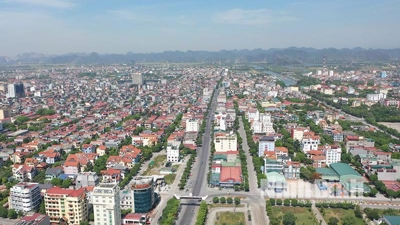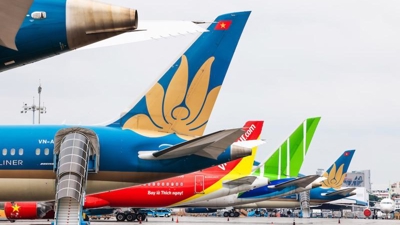Domestic airline ticket prices starting to fall
Booking websites reveal that ticket prices are clearly on a downwards trend.

Domestic airline tickets on routes between Vietnam’s north and south, such as Hanoi - Ho Chi Minh City, have begun to cool down, falling by half compared to just one or two weeks ago.
According to observations from booking websites, round-trip airfares for Hanoi - Ho Chi Minh City flights on the weekend of March 15-17 have come down to as low as VND3.5 million ($143), including taxes and fees, or half the price of one or two weeks ago. Furthermore, round-trip fares on this route a week later are even lower, starting at VND3 million ($122.60)
Similarly, round-trip tickets from Hai Phong, Thanh Hoa, and Vinh to Ho Chi Minh City are as low as VND3 million ($122.60) on the weekend of March 22-24. Ten days ago, flights to Ho Chi Minh City from these locations were mostly sold out or only had Business Class seats available. Tickets on domestic routes are expected to fall further from the beginning of April until prior to the April 30 - May 1 holiday.
Round-trip fares from Hanoi to popular destinations such as Nha Trang, Da Lat, and Phu Quoc Island during the first weekends in April have fallen significantly. The lowest round-trip fares are VND3.4 million ($134) for Hanoi - Phu Quoc, VND3.5 million ($140) for Hanoi - Nha Trang, and VND3.6 million ($147) for Hanoi - Da Lat city.
According to a spokesperson from one private carrier, domestic tickets have started to come down as the Tet holiday period has now passed and passenger demand has cooled. As in previous years, from now until the end of May (except for the April 30 - May 1 holiday), is the low season for domestic flights. Prices are expected to rise again during the peak summer season, starting from early June.
Domestic airline tickets for flights within three weeks of the Tet holiday are still scarce due to carriers lacking aircraft, resulting in reduced supply.
The Civil Aviation Authority of Vietanm (CAAV) has requested that domestic airlines actively plan operations and have backup plans to cover any shortage of aircraft. During this period of fleet turbulence, it recommends that airlines publish lists of flight schedule changes daily, so that passengers can arrange their travel plans accordingly, and adhere to regulations on publicly disclosing fare information to prevent unauthorized increases.
Despite resource constraints, compared to last year, the business operations of airlines are experiencing less tension due to lower aviation fuel costs.











